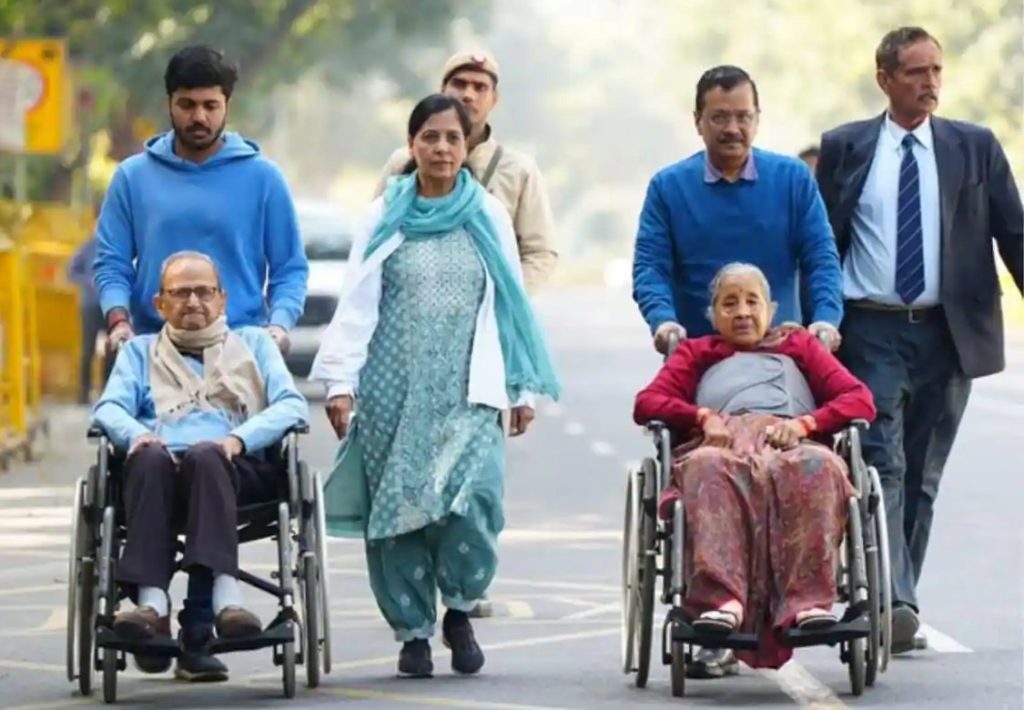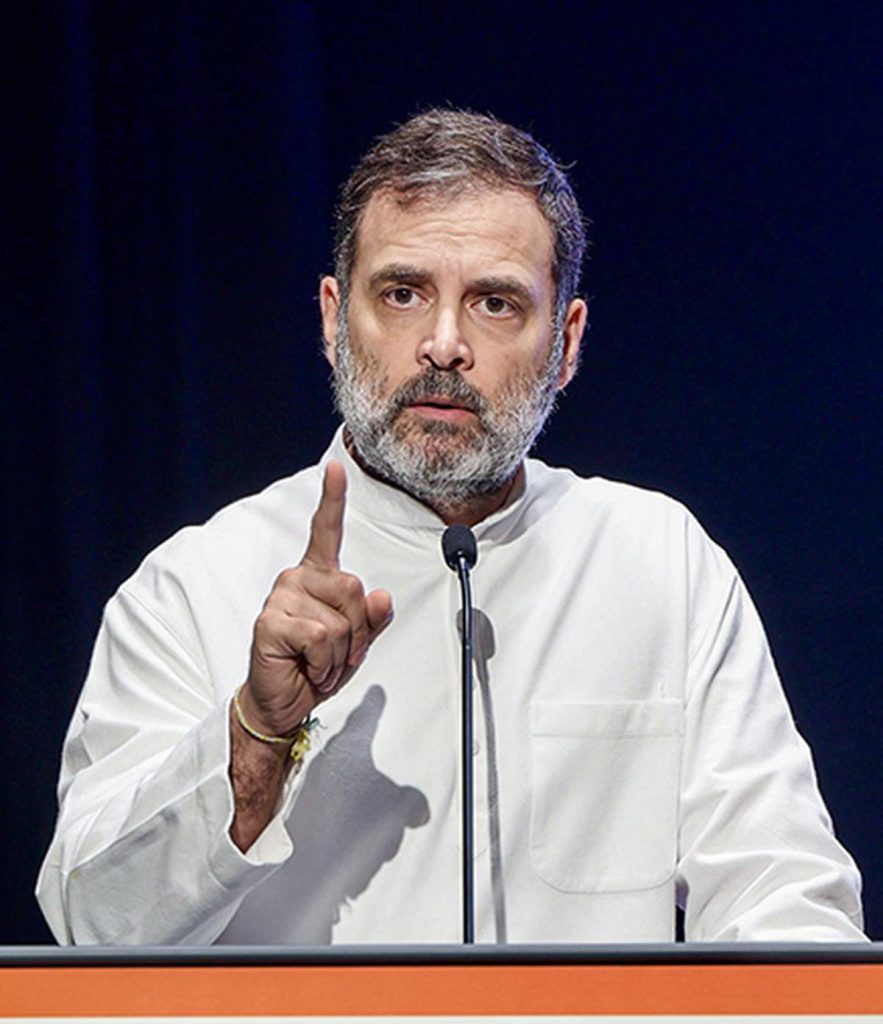Tridib Raman
The recent election results in Delhi have truly swept away Arvind Kejriwal and his Aam Aadmi Party’s (AAP) dreams. From AAP’s perspective, these election results were so unprecedented and unexpected that not only Kejriwal but also his trusted aides—Manish Sisodia, Saurabh Bharadwaj, Satyendar Jain, and Durgesh Pathak—lost the elections. The very middle class that Kejriwal had relied on since 2013 to stay in power in Delhi for nearly a decade turned against him, much like the classic tale of the mongoose and the snake. Over the past few years, Kejriwal and his party had positioned themselves as a party for the poor. Perhaps that’s why polling booths in slums and JJ colonies consistently saw over 90% votes in favour of AAP. However, Kejriwal’s grip on middle-class voters had been loosening over time. In 2018, the Delhi government conducted an economic and social survey that classified families into two major groups: those who spent ₹25,000 to ₹50,000 per month, identified as the middle class, making up approximately 45% of Delhi’s population; and those earning ₹0-20,000 per month, which was a large segment. Kejriwal strategically included this lower-income group as his core vote bank. Most of AAP’s policies—free electricity and water, Mohalla Clinics, improved government schools, etc.—were crafted keeping this demographic in mind. However, just before the 2025 elections, Kejriwal attempted to regain the middle-class vote, but by then, the BJP had already taken the lead. The Modi government, in a swift move, announced the 8th Pay Commission and introduced major tax reliefs for the middle class in the latest Union Budget. This completely changed the game in Delhi, as the middle class increasingly felt that “AAP’s policies only focused on distributing freebies to the poor.” Additionally, Kejriwal’s personal attacks on Rahul Gandhi and the Congress backfired. There are at least 10 key seats in Delhi where Congress secured around 15% of the votes—significantly eating into AAP’s vote share. This also gave Rahul Gandhi an ideal opportunity to settle scores with Kejriwal for Haryana.
Kejriwal’s Love for Camera
Tridib Raman

On February 5, the day of polling in Delhi, AAP supremo Arvind Kejriwal was scheduled to leave his residence at 11 AM to cast his vote. All necessary preparations had already been made in advance. The media had also been informed about this, resulting in a large gathering of journalists, TV cameras, and photojournalists outside Kejriwal’s residence on Feroz Shah Road in New Delhi from early morning. However, news broke that Prime Minister Narendra Modi was also set to take a holy dip at the Maha Kumbh at exactly 11 AM on the same day. This triggered a fierce competition among news channels to broadcast the event live. Sensing the situation, Kejriwal decided to wait until the Prime Minister’s ritual was over so that he could also get proper media coverage. While the media waited outside for Kejriwal, he remained glued to his TV screen, keenly watching for the moment when PM Modi’s bathing ceremony would conclude. As soon as it was 11:30 AM and the Prime Minister took his dip in Prayagraj’s Maha Kumbh, Kejriwal, along with his parents and family, got ready to head to the nearest polling booth. Before leaving, two brand-new wheelchairs were arranged—one for his elderly father, whom Kejriwal personally wheeled out of the house, and another for his mother, which was pushed by his son. His wife, Sunita Kejriwal, followed closely behind. However, Kejriwal’s daughter was noticeably absent from this ‘picture-perfect frame.’ Some people even claimed to have seen his parents taking a morning walk in the small park adjacent to their home earlier that day. Although Kejriwal has lost his Delhi stronghold to the BJP this time, he has not lost hope. He firmly believes that “with the number of AAP legislators still in the assembly, they can make life difficult for the newly formed BJP government in New Delhi.”
Rahul’s Reliance on Dalit Politics
Tridib Raman

Rahul seemed to have an inkling that despite his best efforts, Congress wouldn’t achieve a significant victory in the Delhi elections. However, he knew that if Congress managed to double its vote share, it could disrupt the Aam Aadmi Party’s game. The latest election results in Delhi suggest that at least 10 seats were lost by the Aam Aadmi Party because of Congress. On these seats, Muslim voters openly supported Congress. This provided Rahul with an opportunity to retaliate against Kejriwal for his previous comments and for Haryana. On the day of the Delhi elections, Rahul directly flew to Patna, where a celebration was held at the local Shri Krishna Memorial Hall to commemorate the 130th birth anniversary of Dalit Pasi leader Jaglal Chaudhary. Jaglal Chaudhary had served as a minister in the first Congress government formed after independence. However, the internal conflicts within Congress were openly visible at this event. Neither the state Congress president, Akhilesh Singh, nor Jaglal Chaudhary’s son, Bhudev Chaudhary, were given seats on the stage. Akhilesh Singh got angry at the organizers and said, “The organizers should bear the entire cost of this event, the Pradesh Congress Committee will not bear it.” Akhilesh’s move worked. A seat was hastily arranged for him on the stage next to Mohan Prakash. However, Bhudev Chaudhary, the son of the late Jaglal Chaudhary, was not so fortunate. He was neither given a place on the stage nor allowed to meet Rahul. Rahul Gandhi was given a written speech in which Jaglal Chaudhary’s name was mistakenly written as Jagatpal Chaudhary. Rahul read this incorrect name two to three times before the mistake was corrected. There is also a social development organization in Bihar named after Jaglal Chaudhary, but the people running this organization were not allowed entry to Rahul’s program. Later, when the entire issue caused an uproar in Bihar, Mohan Prakash summoned Bihar Congress in-charge Sushil Pasi and scolded him. Bunty Chaudhary, who actively participated in the event, was also reprimanded. Bhudev Chaudhary, the son of Jaglal Chaudhary and a former MLA, was invited to Sadaqat Ashram, where he was welcomed with flowers and garlands to pacify his anger.
Where is Shivraj Singh Busy?
These days, Shivraj Singh Chouhan has been spending more time in Bhopal than in Delhi. Since January, his frequent trips between Delhi and Bhopal have shown no signs of slowing down. On February 14, Shivraj’s younger son, Kunal, is getting married, and the wedding rituals have been ongoing since January. Kunal runs a dairy and agro-products business. He is marrying Riddhi Jain, who has been a longtime friend. Riddhi’s grandfather was a well-known doctor in Bhopal. Meanwhile, Shivraj’s elder son, Kartikeya, is set to marry on March 6. The wedding celebrations will last two days and will take place at a well-known resort in Udaipur. Kartikeya is following in his father’s footsteps and pursuing a career in politics. He is marrying Amanat Bansal, daughter of prominent businessman Anupam Bansal. In fact, Kartikeya has been actively involved in politics since 2013.
Why is UCC pending in MP?
While the Dhami government in Uttarakhand has implemented the UCC, i.e., Uniform Civil Code (Saman Nagrik Sanhita), the Mohan Yadav government in Madhya Pradesh seems to have lagged a bit in this matter. When Mohan Yadav became the CM of the state, he talked about implementing the UCC. Previously, on June 27, 2023, there was also talk of forming a committee on this again, but then this matter was shelved because the state government knew that ‘the effect of this law would not only impact the Muslim community, but it would also affect the tribal community there.’ In fact, there are 47 such assembly seats in Madhya Pradesh where the tribal community decides the victory or defeat of any candidate. In the 2018 elections, when the BJP was openly raising the issue of UCC, it could only win 15 seats here. In the 2023 elections, the BJP softened its tone on UCC here and won 23 out of these 47 seats, and it understood the implications of this victory.
Astrologers Predict Turmoil to Begin
According to astrologers, there will be a phase of planetary transition from March 29, 2025, to May 18, 2025. During this period, two planets, Saturn and Rahu, will change their positions. Saturn will move into Pisces, where Rahu is already present. This transition is predicted to have adverse effects on the country’s economy. The Indian Rupee may weaken further against the US Dollar. The stock market may experience significant fluctuations. Some new scams from a major industrial house could come to light. Major scandals involving prominent religious leaders may also be exposed. There could be a leadership shift within the Congress party. Sudden changes in weather may be observed in the North and North-East regions. Astrologer Sanjay Chaudhary claims that a similar conjunction occurred in 2003 when there was an unprecedented rise in terrorist incidents in Jammu & Kashmir. A similar conjunction occurred from May to March 1991 when Rajiv Gandhi was assassinated. In May 1980, Saturn’s conjunction occurred in Leo when Sanjay Gandhi tragically died in an air accident.
